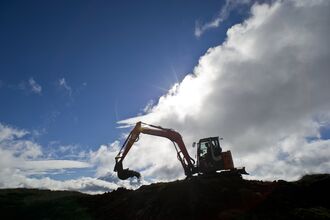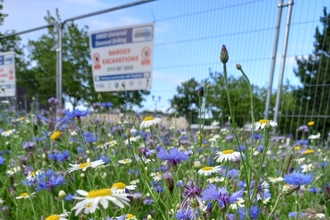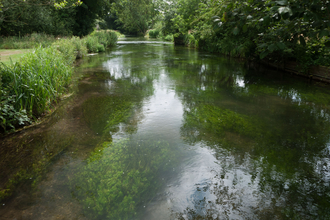
Planning and Infrastructure Bill
In 2025, the Wildlife Trusts and other environmental organisations became increasingly concerned about the risks to wildlife posed by the Planning and Infrastructure Bill.
The Bill aims to help development, like housebuilding, happen faster. But some of the Bill’s contents appeared to have been informed by unfounded claims from senior government ministers that wildlife such as snails, bats and newts are ‘blockers’ to development.
Together we campaigned for changes to the Bill as it progressed through parliament, and thanks to our members and supporters we won some important concessions. However further changes that would have benefited nature were rejected by the government, and the Bill will now become law.
We are still concerned that the Bill weakens existing protections for nature, and threatens Norfolk’s nationally and globally important wildlife sites such as chalk streams, wildflower meadows, and ancient woodlands.
We need homes for people, but destroying homes for wildlife isn’t the way to do it. Alongside Wildlife Trusts across the country, we will monitor the impact of the Bill once it becomes law and continue to campaign against any future government policy that threatens nature.
What we achieved through this campaign
A huge thank you to everyone who supported the campaign to limit the harm to nature from this Bill.
In response to huge pressure, the Government did amend the Bill to add some environmental safeguards in July.
We continued to campaign for further changes, and two further crucial amendments for nature were passed in the House of Lords – including one that would have limited the damage threatened to nature and another that added new legal protection for chalk streams.
We were incredibly frustrated that the government then went on to reject these amendments, though they did make some commitments to take action in the future.
These included a promise that the first of the new Environmental Delivery Plans (EDPs) will concern water pollution only, along with a commitment that any EDPs in other areas will be preceded by a Commons statement presenting the evidence for it.
Promises have also made to consult on new chalk streams planning protections by the end of the year, and to include chalk stream recovery measures in the forthcoming Water White Paper.
The Bill will now become law.
What did Norfolk Wildlife Trust do?
Despite the Government promising a ‘win-win’ for development and the environment, early readings of the Planning and Infrastructure Bill suggested otherwise. They appeared to strip away environmental protections and remove requirements for developers to avoid harming nature.
Working alongside The Wildlife Trusts
We worked alongside The Wildlife Trusts nationally to submit evidence and make recommendations to the committee reviewing the Bill, to try and make nature’s voice heard in the decision-making. We pushed for the Government to improve protections for chalk streams, local wildlife sites and create wildbelts, to protect land that is supporting nature’s recovery.
You can read more from the Wildlife Trusts on the Bill here.
Working with the House of Lords
We worked with members of the House of Lords to try to make sure that the crucial protections for nature which are so desperately needed are included within the Bill. In particular, we supported the Bishop of Norwich, who submitted an amendment seeking to gain further protections for our precious chalk streams. Frustratingly, the amendment was rejected by the government but they did make commitments to take action in future.
Taking action for wildlife
Tens of thousands of Wildlife Trusts members and supporters took action by emailing their MPs, signing open letters and sharing the campaign online – including thousands in Norfolk.
Together we stood up for nature and made sure that the government listened and made important changes to the Bill as it progressed through parliament.
We are incredibly grateful to everyone who supported this campaign. Without your help, the potential impact on nature would have been far worse.
Latest news & blogs

Why be wicked to wildlife when nature is so popular?
Policy and Campaigns Manager, Simon Tiller, shares his thoughts on the new Planning and Infrastructure Bill passing its final stages in…

Planning Bill breaks Labour’s nature promises
We are joining forces with the national Wildlife Trust movement and RSPB to raise grave concerns for wildlife as the Government rejects…

A building threat to Norfolk’s nature
We need sustainable development that goes hand-in-hand with nature, not a new law that accelerates its decline.

We're urging UK Government ministers to protect globally rare chalk streams in planning reform
Alongside a group of UK nature charities, we have written to Rt Hon Angela Rayner MP and Rt Hon Steve Reed OBE MP calling for action to…
